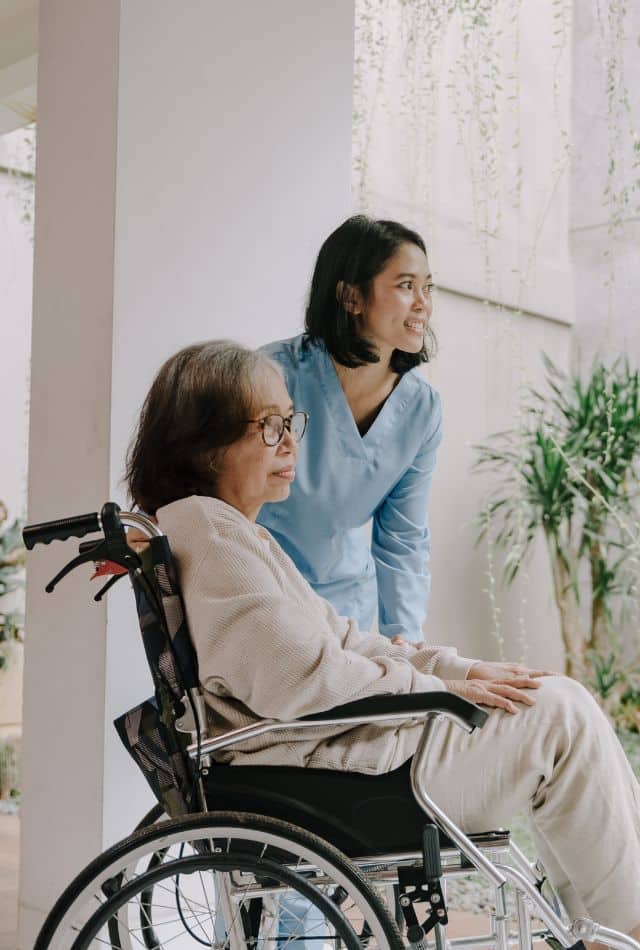What is About Hospice Care
Hospice care is a form of palliative care specifically for people nearing the end of life. It focuses on comfort and quality of life.
Such misconceptions can prevent patients from taking full advantage of hospice services and support.
Health practitioners must let patients and their families know exactly what hospice care means.
Here are some things you need to let them know about the same.

1. It’s More About Personal Care
Hospice care is a different way of dealing with illness and death, but it will be much better in the long run. It involves comprehensive care, including medical, emotional, and spiritual support, focusing on comfort rather than curative treatment.
This is where you can focus on what’s important to you and your family rather than trying to fight an impossible battle against cancer or another severe illness.
There will still be some hard days in hospice care, of course — even with the best palliative care, there may still be days when you feel like curling up in bed and crying.
That’s fine. Hospice workers are used to seeing people have bad days because that’s part of the complicated process of letting go of a loved one. But those bad days will be fewer and further between as you adjust to life without active medical treatment.
2. It Offers Support
Hospice can provide support for your family. If you’re the spouse, partner, or caregiver of someone with a terminal illness, the demands of the situation can be overwhelming.
Hospice provides services that support your role as a caregiver, including 24-hour assistance if needed.
3. It is Different from Palliative Care
Hospice and palliative care are different types of health care that share a common goal: improving the quality and comfort of life for people with serious illnesses.
Hospice care is a specific type of palliative care for patients who are terminally ill and have a prognosis of six months or less if the disease follows its usual course.
The goal of hospice is to provide comfort to you and your family while addressing pain, physical symptoms, and emotional distress.
Palliative care can be provided alongside curative treatments at any stage of a serious illness, focusing on relieving symptoms and improving quality of life.
4. It is Not Just for Cancer Patients
Anyone can access hospice. Although people often associate hospice care with cancer patients, the program is available for those with advanced stages of terminal diseases such as emphysema, heart disease, or Parkinson’s disease.
5. Hospice Care is not an End
Many people mistakenly believe that hospice care means the end of life.
Entering hospice care typically means that a patient has chosen to focus on comfort care and symptom management rather than pursuing curative treatments.
Suitably trained and certified hospice professionals work with patients, their loved ones, and their primary care providers to ensure they get the proper treatment at the right time.
They will also help you manage pain and other symptoms so that you can continue as much of your everyday life as possible.
6. It can be Provided at Home
Patients can choose to receive hospice care at home or in a facility. Depending on their preferences, people who choose hospice care spend their final days at home or in a facility.
Many people find that being surrounded by the comforts of home and the love of family members helps them feel more comfortable near the end of their lives.
Hospice facilities allow families to stay with loved ones during the final stages of life. Many facilities also have recreational activities on-site for children or other loved ones who want to visit.
Consequently, there are two types of hospice programs: home hospice and hospice inpatient care. Home hospice refers to care at home while an individual continues to live there.
The second type is hospice inpatient care, usually when an individual has been admitted into a hospital or nursing facility and receives hospice care there.
Final Thoughts
The word “hospice” may conjure images of extended, hospital-type stays. However, hospice care can mean shorter periods or even briefer visits at home.
Most patients do not know this, so you are better positioned to teach them about it with this information.
See Also
Does Medicare Cover Hearing Aids